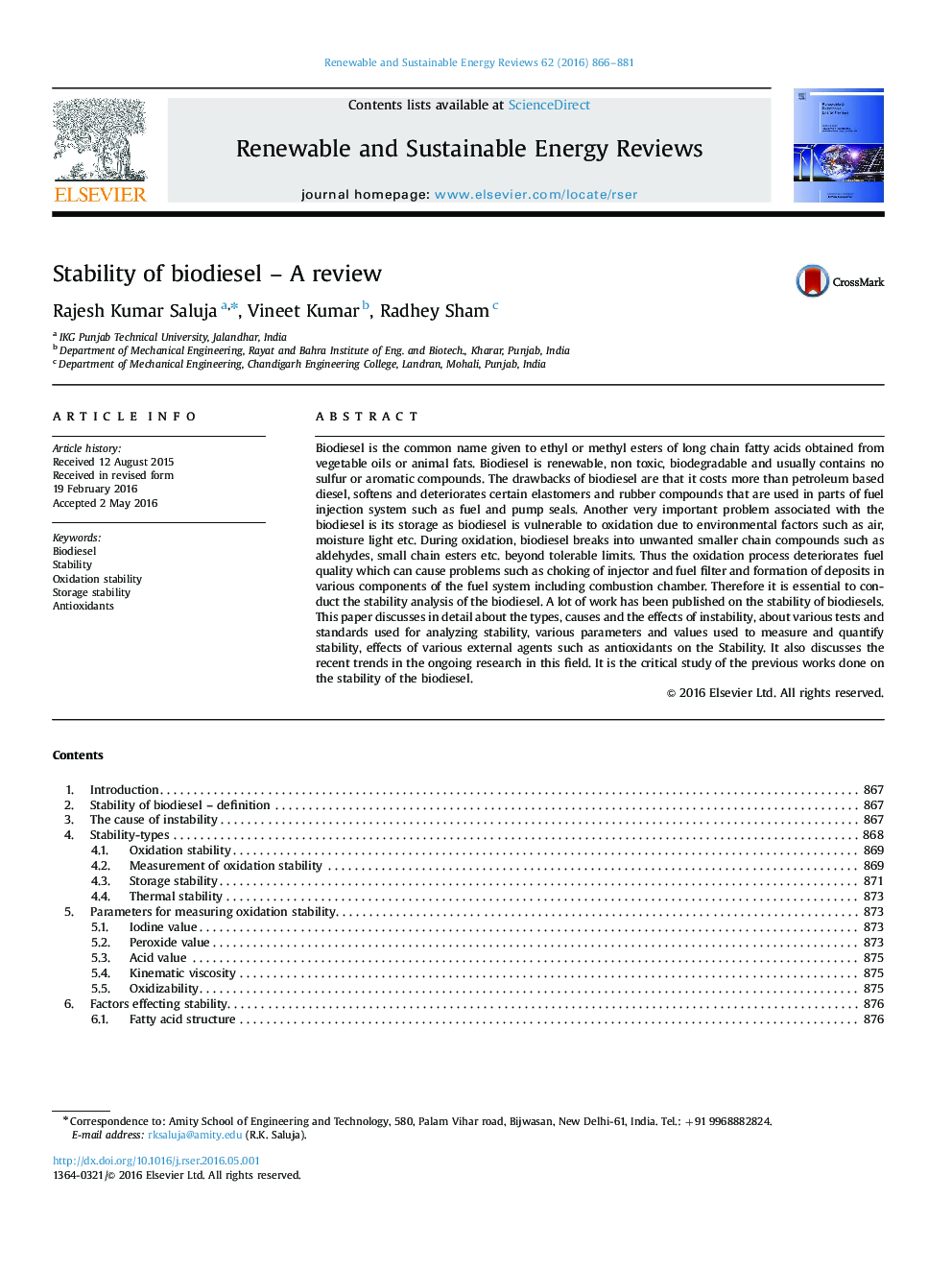| Article ID | Journal | Published Year | Pages | File Type |
|---|---|---|---|---|
| 8113659 | Renewable and Sustainable Energy Reviews | 2016 | 16 Pages |
Abstract
Biodiesel is the common name given to ethyl or methyl esters of long chain fatty acids obtained from vegetable oils or animal fats. Biodiesel is renewable, non toxic, biodegradable and usually contains no sulfur or aromatic compounds. The drawbacks of biodiesel are that it costs more than petroleum based diesel, softens and deteriorates certain elastomers and rubber compounds that are used in parts of fuel injection system such as fuel and pump seals. Another very important problem associated with the biodiesel is its storage as biodiesel is vulnerable to oxidation due to environmental factors such as air, moisture light etc. During oxidation, biodiesel breaks into unwanted smaller chain compounds such as aldehydes, small chain esters etc. beyond tolerable limits. Thus the oxidation process deteriorates fuel quality which can cause problems such as choking of injector and fuel filter and formation of deposits in various components of the fuel system including combustion chamber. Therefore it is essential to conduct the stability analysis of the biodiesel. A lot of work has been published on the stability of biodiesels. This paper discusses in detail about the types, causes and the effects of instability, about various tests and standards used for analyzing stability, various parameters and values used to measure and quantify stability, effects of various external agents such as antioxidants on the Stability. It also discusses the recent trends in the ongoing research in this field. It is the critical study of the previous works done on the stability of the biodiesel.
Related Topics
Physical Sciences and Engineering
Energy
Renewable Energy, Sustainability and the Environment
Authors
Rajesh Kumar Saluja, Vineet Kumar, Radhey Sham,
